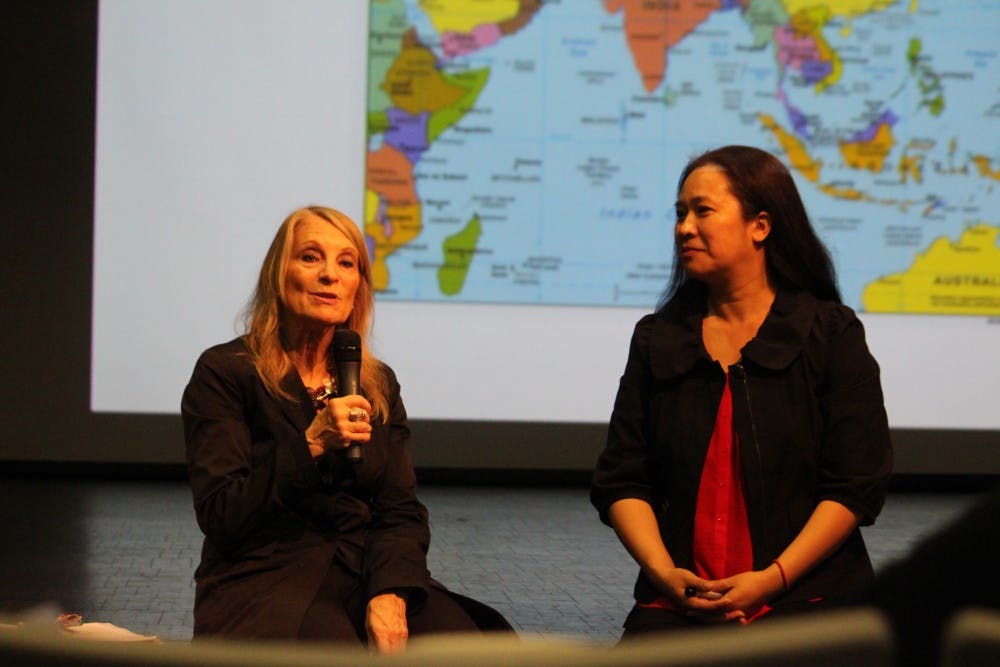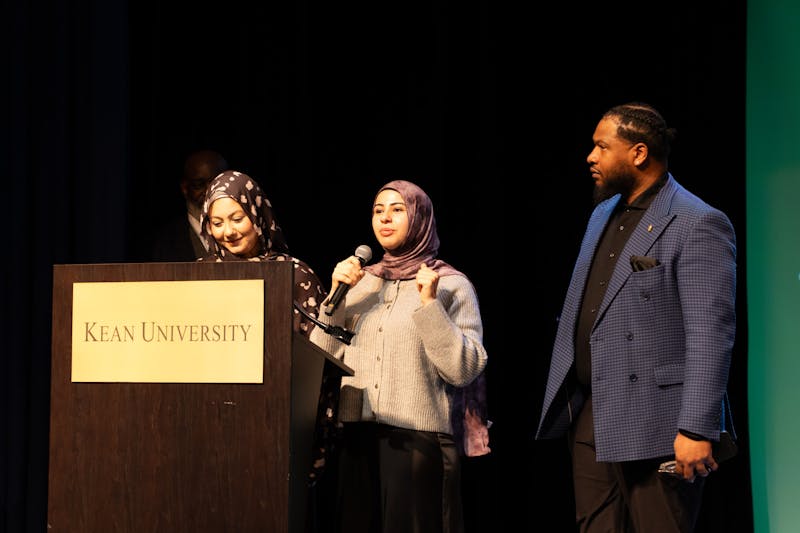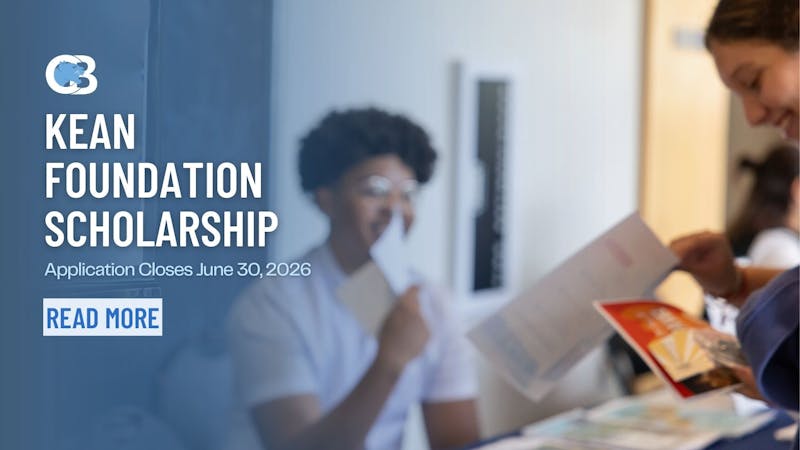In the four-part lecture series Using History to Understand Trump’s America, hosted by the Department of History, the third installment, Asia in Trump’s World, took place on Wednesday, March 1, 2017.
Held in the Little Theatre of Miron Student Center (MSC), the lecture was headed by two members of the Kean community, Dr. Sue Gronewold, director of World History Program, and Dr. Xurong Kong, director of Asian Studies Program.
The Department of History began by conveying that although the series was called a lecture, this was not an exact assessment. Instead of a one-sided lecture, the event was intended to be an open platform in which dialogue could flow freely.
Kong opened with the simple words: “Why Trump?”

As in, this is an individual a percentage of people regarded as non-presidential, and yet he was voted into office and became the 45th President of the United States. She went on to share the development of her interpretations on the past election.
Her initial reaction was shock, and as the election continued, she shifted focus from her thoughts to being curious of why most Asians and Chinese Americans supported Trump. Her research on this topic was half the foundation of the lecture.
In 2015, there were 4.5 million Chinese Americans. Of the nation’s population, six percent was Asian American, with 24.3 percent of Chinese descent. Kong went on to report how Asian Americans were represented in two prior presidential elections. In 2012, Obama had support of 73 percent of Asian American voters. Jump forward four years, in 2016 Clinton’s support dropped to the 60 percent range.
Unlike the American democratic practice of the right to vote, China citizens “Seldom get to practice this voting right in China,” Kong said. So when people from China become American citizens they actively take interest in elections.
At one point in the presentation, Kong introduced WeChat, a popular platform that began in China but quickly spread its popularity past Asia’s borders. Officially released in January 2011, people quickly latched onto the social media application and as of 2016 reached over one billion users.
Why did Kong mention WeChat? The election of 2016 was unlike any other, partially due to the role social media played.
“There are many lessons we can learn from this election,” Kong said. “[We] Saw the culture gap, [especially] in social media.”
Gronewold lead the second portion of the lecture, opening with a strong statement that gave the audience a slight insight of how the final segment was going to go.
“I think I’m going to have a more serious...more scary presentation,” she said honestly.
As the topic of this leg of the lecture series was Asia in Trump’s World, Gronewold spoke on the Pivot to Asia during the Obama Administration and what will happen during the Trump Administration. Pivot to Asia is a foreign policy that attempts for America to have more of a substantial presence in Asia. The former president is criticized for this policy due to its lack of success, leaving Americans wondering how President Trump will fare in carrying out the policy in his term.
“The Pivot to Asia didn’t happen...the changes in Asia didn’t happen in his [Obama’s] eight years,” Gronewold affirmed.“...Are we going to see it now?”
For the majority of the 1800s, China was superior, until it fell off the top. It regained its power as farm peasants changed professions and took up urban living.
“[An approximate] 350 million migrants went from farms to cities, and possibly another 300 million will go to the city.” Due to this increase in urban population and limitations of building outward, China build upward. Gronewold continued, “From 2011-2014, China used more concrete than [America] has used in all its history.”
Cities are only so malleable, can only be expanded so much before there is no more room to expand, and this is why "production stretched to surrounding Asian countries,” she said in explanation of referring to the entirety of Asia as a collective factory. “[Asia is] Responsible for more than half the world’s production.”
One audience member’s question concerned China being the predominate manufacturer on the global scale. Gronewold responded with her take it, which affirms China is not giving up that title anytime soon.
“China has talked about not being the sweatshop of the world,” she answered. “They may be changing some of the products they produce, the textiles, but they will still be the leading manufacturer.”
Gronewold continued with her presentation by offering what the next steps should be taken to develop and nurture amity between the two continents.
America’s relationship with China and other Asian countries is vital because of the extensive ramifications. In 1961, China aligned itself with North Korea by signing the Sino-North Korean Mutual Aid and Cooperation Friendship Treaty. This treaty declares China must fight alongside North Korea if attacked.
“North Korea has always been a problem and it’s not getting any easier...Since World War II we’re tried to [prevent] nuclear war,” Gronewold continued. “On February 12, 2017, North Korea did another missile test. They have enough [materials] for about 20 atomic bombs...We have to find out what North Korea wants...North Koreans have been very consistent [in saying] it only wants to talk to us…,” she offered. “Trump [will probably meet with them]...[and when he does he] has to change his rhetoric.”
As the audience listened to Gronewold, individuals learned the extent of China’s power and influence today.
“China is taking on the world in many ways,” she began. “Last year China invested $31 billion in America alone.” In evaluation of current-day China, “We’re talking more power, more and more stronger.”
The event offered some reflection on most recent events and the possible lasting effects.
Trump caused some concern in the homeland and China when he reached out to Taiwan, which lead to speculation of honoring America’s “One China” policy. In brief summary, the “One China” policy states America solely recognizes one governing power of China, and does not consider Taiwan as a separate entity. Once Trump called Chinese President Xi Jinping to reassure the United States’ diplomatic relationship with China, it appeared all concern dissipated.
“Their economy is slowing and they’re worried,” she went on to say. “Trump [can be viewed as] a godsend to them” because of his business experience. Trump went into office with plans to address China being the leading breadwinner of the world. Both Trump and China recognize one another’s strengths and weaknesses, and it is believed a fair deal for both countries on different matters will be negotiated during his term.
There are American ties in China. Stretched as far as from Wenzhou, China to Union, New Jersey, an American presence is seen.
“They have to educate...and that’s where Kean [University] comes in,” she stated. “This experience in Wenzhou is very successful because of the [requirement to] speak English on campus.” Students are able to practice and hone their English, and that is a valuable trait in China. With worldly business dealings, English perhaps one of the most common spoken language.
“To sum up where we are...in terms of Asia [and Trump], I have no idea,” Gronewold said as one of her last remarks. “We have to wait and see.”






